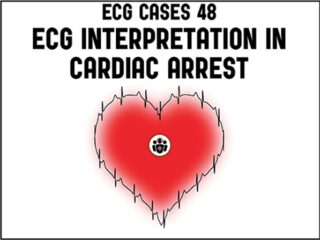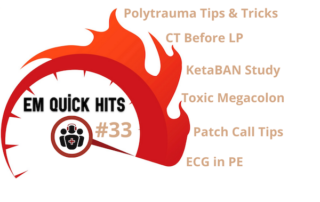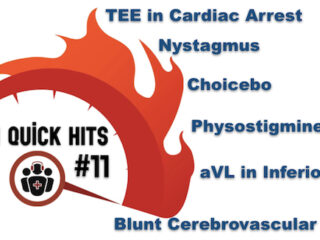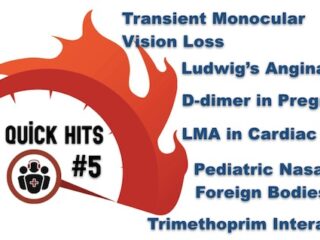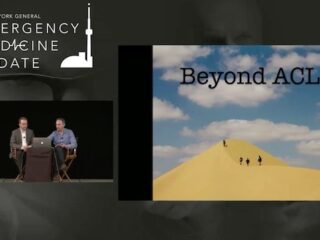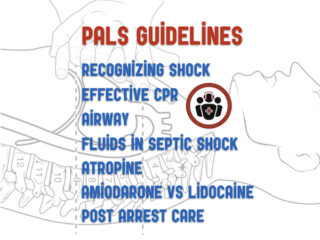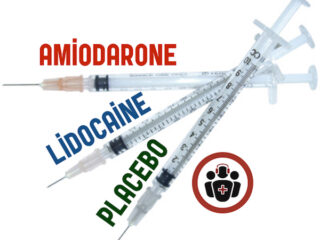ECG Cases 48 – ECG Interpretation in Cardiac Arrest
In this month's ECG Cases blog Dr. Jesse McLaren reviews interpretation of the pre-arrest ECG: identifying high risk ECGs requiring empiric treatment like calcium for hyperkalemia, magnesium for long QT, or reperfusion for Occlusion MI; the intra-arrest ECG: identifying pseudo-PEA; and post-arrest ECG: the importance of serial ECGs to reduce false positive STEMI, role of POCUS to help with the differential of diffuse ST depression with reciprocal ST elevation in aVR, and identifying signs of Occlusion MI/ false negative STEMI...

